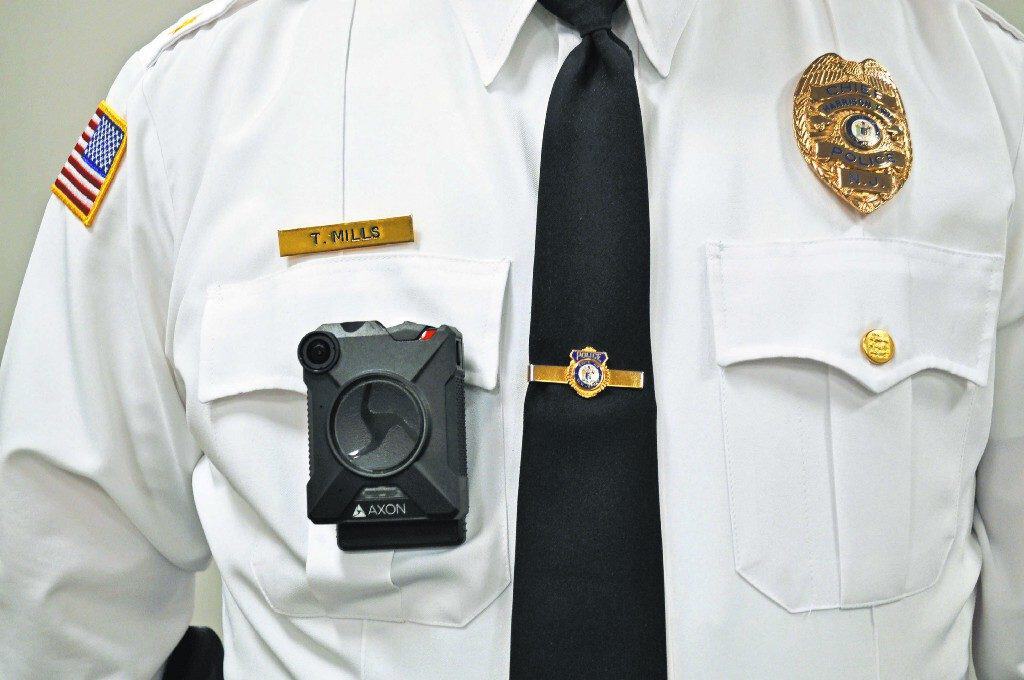
The department entered a free one-year trial with Axon for the equipment to ensure accountability and credibility for officers and the public

For the first time, Harrison Township police officers will be wearing body-worn cameras during their shifts, recording almost all interactions with the public. According to Chief of Police Thomas Mills, while the cameras will provide additional opportunities to record evidence at the scene, the equipment will also allow quality control, accountability and credibility for officers and the community.
“We’re always looking to expand our capabilities, have better job performance and review different things to make sure we’re doing things correctly,” Mills said. “This is just another step in the evolution of being a more professional and proficient police department.”
The cameras are a part of a free, one-year trial through a company called Axon, formally known as TASER International. The Harrison Township Police Department received the equipment at no cost, including 25 cameras, cloud storage and transfers, docking stations and automatic software updates. Once the trial expires on Dec. 1, the equipment will need to be returned, however Mills said at that time the department will begin having conversations about budgeting to purchase its own. According to Mills, while the cameras cost approximately $400 a piece, the storage and user agreements are a greater expense.
“Once we get to the point where we can show this is a good tool, enhancing what we’re already doing, that’s when we start having the conversation with the township committee to get funding for the project,” Mills said.
Cameras will be visible on officers’ uniforms, and will be recording most interactions with the public with the push of a button, with the exception of privacy situations dictated by the department’s policy.
The cameras have high definition recording capabilities and only record what the eye can see, therefore the videos captured are a “good representation” of what officers experience, Mills said. The software also allows the department to take still-frame shots from videos, which can be beneficial in specific investigations.
“You want to see what [officers] see, how they saw it and when they saw it, versus something the camera might pick up that the officer would not see because it’s dark and the camera has a better view,” Mills said.
Mills said the video content will be handled with the same evidentiary value as anything else, and will also help internal affairs when complaints on officers are made to ensure credibility and accountability.
“When people know they’re being recorded, we would hope they would act better,” Mills said. “We’ll be able to check and determine if this is actually taking place.”
Officers will also be selected randomly each month to review camera recordings, ensuring the department’s staff is following all policies and procedures at all times, Mills said.
While officers already had fixed cameras in their vehicles, they were limited to only record certain situations, such as speed or when the lights turn on in the car. Additionally, officers have the ability to record audio with the police vehicles, however there is the chance of becoming out of range. Body-worn cameras, Mills said, give officers the ability to take video and photos when they are away from the car, providing new opportunities and capabilities than ever before.
“This allows us to have better officer accountability and better accountability for the residents,” Mills said. “If everybody is aware they’re being taped — the officers, the public — we’re hoping for more safe encounters on the road.”
Mills expected the body cameras to be implemented no later than this week once all officers and staff had completed training.









